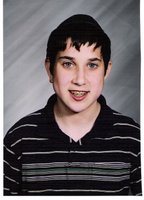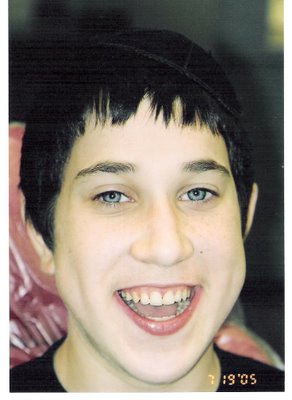"Boycotting" Hallel
On the Jewish Festival days including Passover, Jews recite Hallel, a series of joyous psalms - numbers 113 through 118 - during the morning services.
Jewish law notwithstanding, I refused to recite Hallel during the morning services on the first four days of Passover. That was my protest.
I would have found it particularly galling to have chanted Psalm 115:17, "The dead do not praise You, nor do those who descend into silence." Avi can no longer recite that and the following verse, "But we shall praise You now and forever."
Where is Avi's "now"? What happened to Avi's "forever"? The Psalm itself declares that the dead cannot praise God.
During each of those four days, I joined Avi for a moment by descending into silence. If he could not chant, then neither would I.
Jewish law notwithstanding, I refused to recite Hallel during the morning services on the first four days of Passover. That was my protest.
I would have found it particularly galling to have chanted Psalm 115:17, "The dead do not praise You, nor do those who descend into silence." Avi can no longer recite that and the following verse, "But we shall praise You now and forever."
Where is Avi's "now"? What happened to Avi's "forever"? The Psalm itself declares that the dead cannot praise God.
During each of those four days, I joined Avi for a moment by descending into silence. If he could not chant, then neither would I.






4 Comments:
Jay,
I did some research on the rabbinical interpretation of "לא המתים יהללו... "
By way of background - the Shulchan Aruch says (Aruch Chayim, 23:1) that walking into a cemetery with your talit katan fringes (tzitzit) showing (outside your clothing) is forbiden, since it is haughty and disrespectful to the dead.
The Rashb"i says meaning of that saying in Tehilim "לא המתים יהללו ..." is that the deceased are exempt from performing mitzvot - yet we who are still on this earth are obligated to all the mitzvot.
We are reminded to be thankful that we can still praise Hashem and perform mitzvot while in this world. Surely, Tehilim would not want to be disrespectful to the deceased.
Moshe (Avi z"l's uncle)
There are Rabbinic commentaries, such as Ibn Ezra, that soften the plain, contextual meaning of the words; nevertheless, the words cannot escape their plain, contextual meaning (p'shat). See the RaDaK ad locum.
I suppose that we can busy ourselves talking about intents and laws and which commentator said what about our obligations, but for me what is profound about this post is the agonized and poignant cry of a bereaved father being struck anew by the power of words heretofore routinely chanted.
I could not judge such a feeling of grief and outrage as remotely disrespectful.
This comment has been removed by a blog administrator.
Post a Comment
<< Home